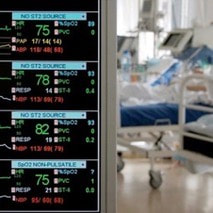Anaesthesia
|
FAQs
Are anaesthetics safe? Anaesthesia has advanced over the past 10 years and as a result anaesthesia is very safe. But, in common with all medical interventions, anaesthesia has an element of risk which varies according to the circumstances. Will I get a Pre-med ? Sedative premeds are not routinely given, but may be of benefit in anxious patients. |
Background
Anaesthesia means ‘loss of sensation’. General anaesthesia involves drugs which induce a deep sleep; Anaesthetics are used for pain relief during surgical operations so that you do not feel pain, touch, or pressure. Local anaesthesia involves injecting drugs into the skin to numb a small area. Sedation involves drugs that produce sleepiness or a light sleep but stop short of general anaesthesia. All of these techniques can be used alone or in combination depending on the specific procedure.
Common Concerns
1. Nausea
Nausea (feeling and being sick) after a general anaesthetic is a common fear. Because it is so unpleasant, a combination of medications and other techniques to reduce the incidence of nausea are routinely employed.
2. Post-operative pain
It is my aim to optimise pain relief while minimising the side effects of the painkillers. A variety of medications are used for minor surgery. Intermediate surgery often requires the addition of stronger pain killers which may be required as injections. Major surgery usually requires strong painkillers in a drip. Every patient feels pain in a slightly different way and I aim to tailor your pain control to your requirements.
Nausea (feeling and being sick) after a general anaesthetic is a common fear. Because it is so unpleasant, a combination of medications and other techniques to reduce the incidence of nausea are routinely employed.
2. Post-operative pain
It is my aim to optimise pain relief while minimising the side effects of the painkillers. A variety of medications are used for minor surgery. Intermediate surgery often requires the addition of stronger pain killers which may be required as injections. Major surgery usually requires strong painkillers in a drip. Every patient feels pain in a slightly different way and I aim to tailor your pain control to your requirements.
Air Travel Before and After Anaesthesia
Any operation carries a small risk of clots developing in the leg called deep vein thrombosis or DVT. The risk is greater with longer operations, in smokers, in women, and in patients with chronic infection. Operations on the pelvis and legs carry a higher incidence.
Air travel carries a risk of DVT due to depressurisation and inactivity. The risk is greater in economy and increases with the length of the flight. You should not fly immediately before or after an operation as each operation and each flight are accumulative. If you live abroad, you should plan to arrive a few days before the operation and do not fly immediately afterwards.
If you are flying please let me know at the pre-operative consultation so I can assess your risk and decide whether to give you anticoagulants. In most cases, it is recommended that patients wait until the first full week after surgery, once the first follow-up visit with the surgeon has been completed.
Air travel carries a risk of DVT due to depressurisation and inactivity. The risk is greater in economy and increases with the length of the flight. You should not fly immediately before or after an operation as each operation and each flight are accumulative. If you live abroad, you should plan to arrive a few days before the operation and do not fly immediately afterwards.
If you are flying please let me know at the pre-operative consultation so I can assess your risk and decide whether to give you anticoagulants. In most cases, it is recommended that patients wait until the first full week after surgery, once the first follow-up visit with the surgeon has been completed.
Proudly powered by Weebly
